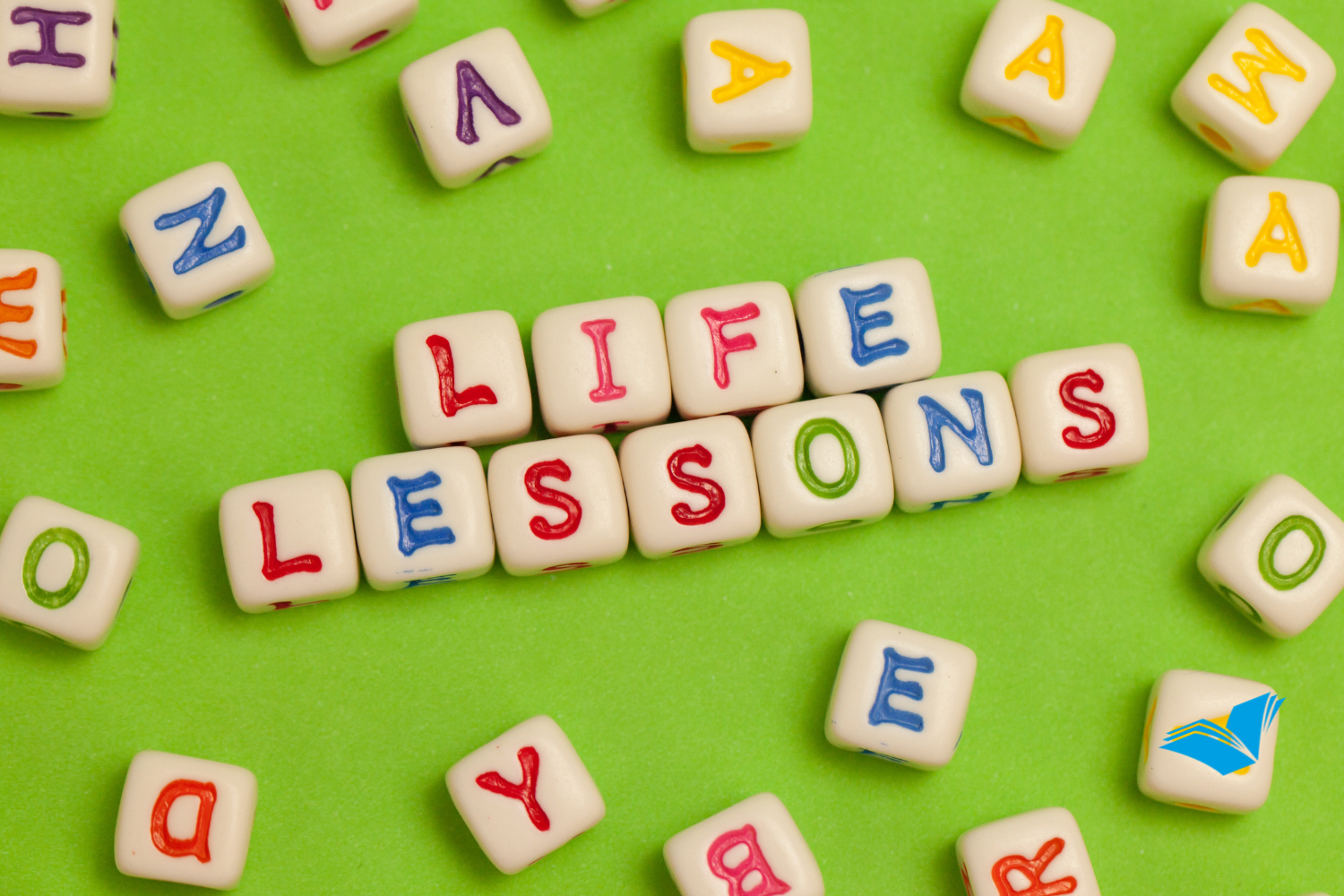What Life Lessons Are You teaching Your Children?
/What Life Lessons Are You Teaching Your Children?
Are you stopping long enough to reflect upon the messages you send your children through your words and actions—even the expressions on your face?
Because we each impact our children's understanding of themselves and the world they live in every single day by the way we show up for them.
It’s easy to overlook this aspect of parenting, but it’s critical that we stay alert to our own shortcomings and do our best to correct them.
“Always be nice to your children because they are the ones who will choose your rest home.”
A common bad habit that 99% of us have is the habit of engaging with our phones too often.
Tell me if this scenario rings a bell: you hear your text go off, so you pick up your phone. A friend has texted you, so you text her back. You exchange a few texts and then your child asks you for something. But now you’re in the grip of your phone, so you tell your child you’ll be right there.
But you aren’t right there and now your child begins to whine. You start feeling annoyed with the child. Finally, you pull yourself away from your phone, but you’re annoyed that you couldn’t finish what you were doing.
Your child can feel you are irritated. And the beat goes on.
Now let me ask you a question: wouldn't you throw your phone away in a heartbeat if you thought your child would look back to his childhood and see you as a parent who was glued to her smartphone?
Of course, you would.
And for your child, this translates into a belief about himself that his needs are not important enough to be met. He has adopted a belief about himself that isn’t true. And he’ll enter adulthood with the belief that his needs aren’t important, and he’ll be comfortable in relationships with people who ignore his needs.
Why? Because that’s what’s normal for him. That’s the world he grew up in and that world shaped his beliefs about himself, and it shaped his belief about the way he should be treated by others.
And this is what happens when the “few” minutes on our smartphones add up to hours and the hours add up to days and then weeks and then months. And, sadly, our kids will grow up to repeat the same pattern with their children.
It’s the little things we do that add up to the big things which determine the quality of our parenting.
“We are what we repeatedly do. Excellence, then, is not an act, but a habit.”
I'm not suggesting we should cater to our child's every whim but spending too much time on our phone, for example, is like sitting around watching television all day.
Most of us would consider watching a lot of television negligent parenting because we know better. But somehow smartphones and other bad habits slip through the cracks, and we don't think twice about them.
It's easy to go through the parenting years oblivious to ways that seem inconsequential at the moment but prove later to have hurt our children.
That’s why taking an inventory of our habits periodically will help us stay present to the way we show up for our kids. If we notice that we’ve developed a bad habit, such as using our phones too much, then we can take steps to correct it while our children are still young.
It’s not as difficult as it might sound.
The first step is to define the bad habit. Be specific. For example, if every time you have coffee in the morning, you pick up your phone, state it as such.
Next, decide on a new habit you can adopt to replace the old habit. In this case, decide that every morning when you have coffee you’ll read a book instead. Or maybe you’ll drink your coffee and be present to enjoying a quiet moment before the children wake up.
To avoid the urge to pick up your phone, the night before you want to put it out of sight and out of reach. Create obstacles that make it difficult to pick up your phone in the morning.
Decide on a time of day when you can look at your phone. Set a timer so you don’t find yourself hours later coming out of a virtual vortex.
Start with one bad habit, conquer it, and then choose another. The process of breaking a bad habit is always the same.
We will naturally become more effective parents if we become aware of the little things we do that add up to the big lessons we teach.
With this in mind, what bad habit would you like to conquer to become a better parent?
Get a copy of Liz’s “could not live without” book, Education’s Not the Point: How Schools Fail to Train Children’s Minds and Nurture Their Characters with groundbreaking Essays on educating your kids by John Taylor Gatto, Dorothy Sayers, and Liz herself.
About Elizabeth Y. Hanson
Developing a comprehensive understanding of how to raise and educate a “whole” child, based on tradition and modern research, Liz devotes her time to helping parents to get it right.
Liz is a homeschooling thought-leader, as well as the creator of three unique online courses, Raise Your Child Well: Preserving Your Child's Natural Genius by Laying a Solid Foundation During the First Seven Years; the Smart Homeschooler Academy, educating children who are brilliant, happy, and well-socialized; and How to Teach Your Child to Read and Raise a Child Who Loves to Read.
As an Educator, Homeschool Emerita, Writer, and Love and Leadership Certified Parenting Coach, Liz has 23 years of experience guiding parents through the amazing journey of raising and educating their children.
Liz is available for one-on-one consultations as needed.
"I know Elizabeth Y. Hanson as a remarkably intelligent, highly sensitive woman with a moral nature and deep insight into differences between schooling and education. Elizabeth's mastery of current educational difficulties is a testimony to her comprehensive understanding of the competing worlds of schooling and education. She has a good heart and a good head. What more can I say?”
—John Taylor Gatto Distinguished educator, public speaker, and best-selling author of Dumbing Us Down: The Hidden Curriculum of Compulsory Schooling. For a copy of The Short Angry History of Compulsory Schooling, click here.
















